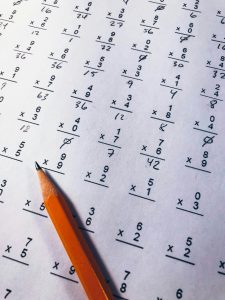Solving Math Puzzles Together: A Parent-Child Bonding Activity

Are you a parent who wants to improve your child’s math skills while spending quality time together? Solving math puzzles can be a wonderful bonding activity that not only reinforces mathematical concepts but also promotes teamwork and communication skills. In this article, we will explore the benefits of solving math puzzles together, provide ideas for different types of puzzles, and offer tips for a successful puzzle session. By engaging in these activities, you can enhance your child’s problem-solving abilities, promote a positive attitude towards math, and create lasting memories.
Benefits of Solving Math Puzzles Together:
-
Strengthens Parent-Child Bond:
Working on puzzles fosters collaboration and communication, allowing parents and children to connect over shared challenges and victories. As you work together towards a common goal, you will develop a stronger bond and create lasting memories.
-
Enhances Problem-Solving Skills:
Math puzzles require critical thinking and the development of strategies to solve problems. By tackling various puzzles, children learn to analyze information, think logically, and devise solutions. These problem-solving skills are essential not only in mathematics but also in everyday life.
-
Encourages a Positive Attitude Towards Math:
Engaging in fun, interactive math activities helps reduce math anxiety and builds confidence in children’s abilities. By presenting math as an enjoyable challenge rather than a daunting task, children develop a positive attitude towards the subject.
-
Promotes Teamwork:
Solving puzzles together teaches kids the value of teamwork and how to approach challenges collaboratively. As they work with their parents, children learn the importance of listening to different perspectives, sharing ideas, and compromising to reach a solution.
-
Fosters a Growth Mindset:
Working through difficult puzzles can instill resilience in children, teaching them that persistence leads to success. They learn that mistakes are opportunities for learning and growth, fostering a growth mindset that extends beyond the realm of mathematics.
Ideas for Math Puzzles to Solve Together:
-
Magic Squares:
Create a 3×3 grid where the sum of each row, column, and diagonal equals the same number (usually 15). Use numbers 1 to 9 without repetition. This puzzle encourages logical thinking and strategy development.
-
Math Riddles:
Engage with math-related riddles that require creative thinking. For example:
“What is the smallest positive number that is divisible by 7, 8, and 9?” (Answer: 504)
“If you have three apples and you take away two, how many do you have?” (Answer: Two)
-
Logic Puzzles:
Present scenarios that require deductive reasoning. For instance:
“A farmer has 15 sheep. All but 9 died. How many sheep are left?” (Answer: 9)
-
Sudoku:
Work on Sudoku puzzles together, adjusting the difficulty based on your child’s age and skill level. This classic game enhances logical reasoning and pattern recognition.
-
Crossword Math Puzzles:
Create or find crossword puzzles where the clues are math problems or equations that lead to numerical answers. This combines vocabulary with mathematical skills.
-
Word Problems:
Craft word problems based on real-life situations that require mathematical solutions, such as budgeting for a family outing or calculating time for a trip.
Tips for a Successful Puzzle Session:
-
Set a Comfortable Environment:
Choose a quiet space with minimal distractions where you can focus on solving puzzles together. Create a cozy and inviting atmosphere that encourages learning and engagement.
-
Encourage Open Communication:
Discuss different approaches to solving the puzzles and encourage your child to express their thought processes. Ask open-ended questions to prompt critical thinking and problem-solving skills.
-
Celebrate Successes:
Acknowledge when your child solves a puzzle or makes progress, reinforcing their confidence and enthusiasm for math. Celebrate small victories along the way to keep motivation high.
-
Be Patient:
If your child struggles with a puzzle, offer hints or guidance instead of giving away the answer. This promotes independent thinking and allows them to develop problem-solving skills at their own pace.
-
Explore Different Types of Puzzles:
Keep the puzzle sessions interesting by incorporating a variety of puzzles. Rotate between different types, such as magic squares, riddles, logic puzzles, Sudoku, crossword math puzzles, and word problems.
-
Make it Fun:
Add an element of fun to your puzzle sessions by incorporating rewards or turning it into a friendly competition. For example, you can set a timer and see how many puzzles you can solve together within a certain time frame.
Solving math puzzles together is not only an effective way to improve your child’s math skills but also a fantastic opportunity to bond with them. The benefits of this activity go beyond mathematics, fostering communication, teamwork, and a growth mindset. By setting a comfortable environment, encouraging open communication, celebrating successes, and exploring different types of puzzles, you can create memorable experiences that strengthen your relationship while enhancing your child’s math skills in an enjoyable way.
If you’re looking for a structured approach to developing your child’s mental math abilities, consider enrolling them in SIP Abacus courses. SIP Abacus offers world-class skill development programs that use the abacus tool and visualization techniques to teach children mental math skills. These programs are designed to unlock the full potential of children through fun and interactive learning methodologies. With small class sizes, interactive software, and engaging lesson plans, SIP Abacus provides a supportive environment for children to develop strong mental math abilities, improve focus and concentration, enhance overall intelligence, and boost confidence. Studies have shown that children who complete the SIP Abacus program perform significantly better in math and reading at school, often surpassing their peers by several years within a short span of time.
So why wait? Start solving math puzzles together with your child today and witness the positive impact it has on their cognitive development, academic performance, and the parent-child bond.



